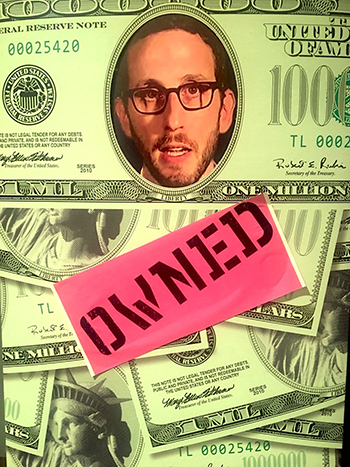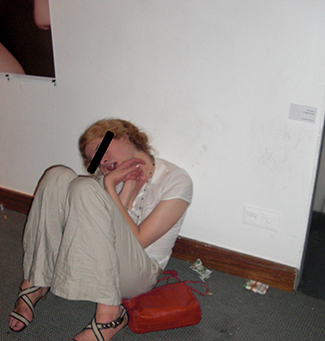2018 CA Legislative Wrapup: Big Wins for Prevention, But Trouble Ahead
 AJ and CAPA won tough legislative battles but Big Alcohol's favorite lawmakers won't rest.
AJ and CAPA won tough legislative battles but Big Alcohol's favorite lawmakers won't rest.
Every year, Alcohol Justice picks a number of alcohol- and opioid-related bills to either support or oppose. The California Alcohol Policy Alliance (CAPA) does likewise with a smaller subset of alcohol-related bills. The past year marked some very difficult legislative fights, most notably SB 905 (the 4 a.m. bar bill), which needed the Governor’s veto to stop. However, when all was said and done, the year proved to be remarkably successful by the standards of public health and safety advocacy. Alcohol Justice saw fully half of the legislation it supported pass, and nearly half of the legislation it opposed stopped. CAPA, meanwhile, had a perfect record—all of the bills it opposed were killed, and the one it supported passed.
—
The final tallies for the 2018 bills on which Alcohol Justice or CAPA took positions:| Alcohol Justice | CAPA | |
| SUPPORTED | 4 | 1 |
| SIGNED INTO LAW | 2 | 1 |
| OPPOSED | 15 | 4 |
| KILLED | 7 | 4 |
| BATTING AVERAGE | 0.475 (9/19) |
1.000 (4/4) |
--
Significant Victories
SB 905 (the 4 A.M. Bar Bill). KILLED. California legislators, pushed by major alcohol and entertainment lobbies, make periodic efforts to prolong service hours at California bars. These bar opening hours, or “trading hours,” have a significant, measurable effect on public health and safety. Over 40 years’ of data from four continents show that trading hour restrictions reduce violent crime, injury, dangerous driving, and similar acute alcohol-related harms.
Despite California’s reputation as a rational, evidence-first legislative environment, State Senator Scott Wiener (D-San Francisco) has lobbed legislative grenades wrapped in disingenuous pseudo-science, with the goal of wiping out standard last-call times. The most recent, SB 905, originated in Sen. Wiener’s effort to manipulate senate rules and reintroduce a qualitatively identical failed bill (SB 384) from 2017. The only significant difference between the two was SB 905’s ostensible “limit” on affected cities, a limit that was expanded at every step until over 75% of the population of California would be subjected to the “Splash Effect” of intoxicated drivers and overstressed emergency services.
Fortunately for California, one of Governor Jerry Brown’s last acts was to veto the bill based on his belief that “we have enough mischief from midnight to 2 without adding two more hours of mayhem.”
Unfortunately, this provides only temporary comfort. Sen. Wiener, no doubt under fire from his donors, has declared his intention to bring the bill back for a third consecutive year. If it gets through the legislature again, it will reach the desk of a very different Governor. Alcohol Justice is carefully watching this legislation and, should it re-emerge, preparing to stop it once and for all.
AB 2460 (Alcohol in Art Galleries) . KILLED. In case you think we come only to praise Caesar Gov. Brown, in 2016 he recklessly signed the Dry Bar Bill, allowing hair salons and barber shops to give alcohol to patrons without licensing or oversight. This set a clearly dangerous precedent, and in 2017, Assembly Member Matthew Harper introduced a bill to allow the same indiscriminate pours at art galleries in California. (Sen. Wiener, not one to let an obviously bad idea pass him by, later signed on as a coauthor.)
. KILLED. In case you think we come only to praise Caesar Gov. Brown, in 2016 he recklessly signed the Dry Bar Bill, allowing hair salons and barber shops to give alcohol to patrons without licensing or oversight. This set a clearly dangerous precedent, and in 2017, Assembly Member Matthew Harper introduced a bill to allow the same indiscriminate pours at art galleries in California. (Sen. Wiener, not one to let an obviously bad idea pass him by, later signed on as a coauthor.)
As it stands, the practice of art galleries offering alcohol to visitors is illegal. Nevertheless, galleries frequently ply guests with alcohol. In some ways, this trend is even more hazardous than offering it in salons, since no purchase is expected and there is no way to track who received the drink. Moreover, few galleries have the training or the staffing to ID patrons or properly deal with ones who have overconsumed. Since this problem already exists, AB 2460 would eliminate any possibility for ABC or other law enforcement to address it. It is, in essence, a surrender to alcohol harm, furthering the alcohol industry’s inundation of every aspect of daily life.
The bill was a two-year bill, meaning it was introduced in 2017 but not brought to vote in all the chambers necessary to pass it (or kill it). Asm. Harper may have hoped that by nursing the bill over an extended period of time, it would seem less dangerous. However, opposition was quick and vocal, and the bill was stopped in committee. As a two-year bill, this was sufficient to kill it.
AB 2914 (the Cannabooze Bill). SIGNED INTO LAW. As the legal marijuana industry gets a foothold in California, alcohol companies have been quick to try to exploit the new recreational drug market. However, California took the proactive step of banning the sale of alcohol where marijuana is consumed, and vice-versa. However, various attempts were made to circumvent or https://www.nytimes.com/2018/09/03/travel/marijuana-food-hotels-spas.html outright ignore the law. Asm. Ken Cooley’s Cannabooze bill closed those loopholes tightly (or almost tightly), preventing the alcohol industry from establishing alcohol use as the “new normal” for individuals buying marijuana. Not only does this prevent the alcohol industry from getting people to drink who wouldn’t otherwise, it protects against the effects of marijuana and alcohol co-use, which is far more incapacitating than either drug alone.
AB 2914 set a firm firewall between alcohol and cannabis products. Alcoholic beverages could not be infused with any form of cannabinoid, including CBD. Cannabinoids, or ostensibly inert parts of the plant, could not be used as a flavorant, and synthetic cannabinoids could not be mixed into an alcoholic beverage. It also made clear who the likely offenders are. The original regulations were directed at marijuana product manufacturers and sellers. This bill realized that the alcohol industry would be just as likely, or more likely, to try and breach that wall, and seeks to stop those activities cold. CAPA strongly supported it as it was passed through the legislature and signed into law.
—
While these victories show that grass-roots public health and safety advocates can and do make a difference in California, they are attenuated by the fact that many bills Alcohol Justice opposed were passed into law this year. Each of these defeats harms Californians, usually by a little, sometimes by a lot. As legislators lose sight of their critical role in interceding between a powerful alcohol industry and their constituents, it becomes harder and harder to pass the laws California needs. With that in mind, Alcohol Justice and CAPA anticipate a 2019 that sees a continued flood of ill-advised, dangerous legislation. But we also anticipate a 2019 that sees more and more Californians finding their voice and calling for an end to Big Alcohol’s endless drive to flood the state, the nation, and the planet.
TAKE ACTION to thank Gov. Brown for vetoing the 4 A.M. Bar Bill.
READ MORE about SB 905 and the harms of extended trading hours.
READ MORE about the dangerous mix of cannabis and booze.
Help us hold Big Alcohol accountable for the harm its products cause.
| GET ACTION ALERTS AND eNEWS |
STAY CONNECTED    |
CONTACT US 24 Belvedere St. San Rafael, CA 94901 415-456-5692 |
SUPPORT US Terms of Service & Privacy Policy |


